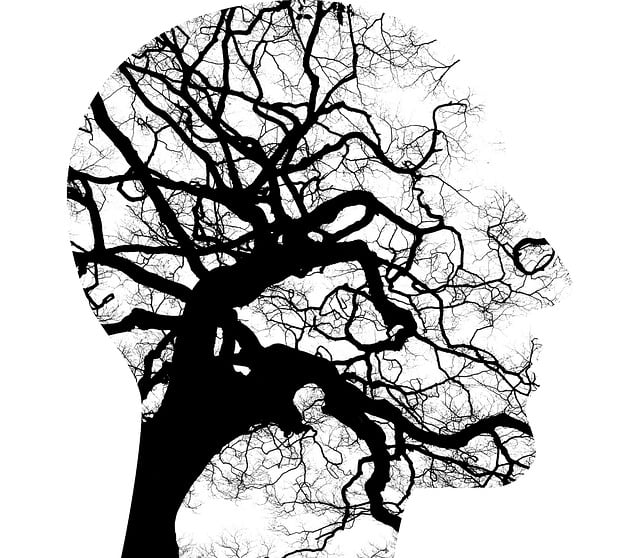Englewood Functional Neurological Disorder (FND) Therapy leads a transformative community outreach initiative, tackling the challenges of chronic neurological conditions like EFND. Through specialized programs, they educate, empower, and connect individuals to vital resources, breaking down isolation barriers. Offering therapy, social skills training, and mental wellness podcasts, these grassroots efforts enhance care accessibility and promote open conversations about mental health. By understanding local needs and cultural contexts, they tailor initiatives for effective impact, building partnerships with community centers and schools. Measuring KPIs ensures the program's success in improving mood management and overall well-being while contributing to a healthier, more resilient community.
Community outreach programs play a pivotal role in addressing neurological disorders, enhancing access to care, and improving quality of life. This article explores strategies for implementing successful initiatives, using Englewood Functional Neurological Disorder Therapy (EFNDT) as a case study. We delve into the process of understanding community needs, designing targeted programs, and measuring their impact. By examining EFNDT’s approach, we offer insights on how similar programs can effectively reach and support communities affected by neurological conditions.
- Understanding Community Outreach for Neurological Disorders
- Englewood Functional Neurological Disorder Therapy: A Case Study
- Implementing Effective Community Outreach Programs
- Measuring Success and Impact of Outreach Initiatives
Understanding Community Outreach for Neurological Disorders

Community outreach for neurological disorders is a vital initiative aimed at improving access to care and support for individuals affected by conditions like Englewood Functional Neurological Disorder (EFND). It involves various programs and activities designed to educate, empower, and connect communities with essential resources. These efforts are crucial in breaking down barriers that often isolate those living with chronic or complex neurological conditions.
Through community outreach, organizations can offer specialized therapy services, such as Englewood Functional Neurological Disorder Therapy, directly to individuals who might face challenges in reaching traditional healthcare settings. Additionally, initiatives may include Social Skills Training and Mental Wellness Podcast Series Production to foster a sense of belonging and promote self-care practices. By engaging communities at the grassroots level, outreach programs empower folks to take control of their mental wellness and navigate the complexities of living with EFND or similar disorders.
Englewood Functional Neurological Disorder Therapy: A Case Study

In Englewood, a community outreach program focusing on Functional Neurological Disorder (FND) therapy has been a game-changer for many residents. This initiative aims to combat the often-misunderstood and misunderstood nature of FND, which can manifest in various ways, affecting daily functioning and mental health. The program offers tailored support, emphasizing emotional intelligence and stress management techniques, addressing the unique challenges faced by individuals with FND. By fostering a sense of community, it encourages open conversations about mental health, breaking down barriers and promoting early intervention.
Englewood’s approach to FND therapy highlights the power of community engagement in healthcare. Through workshops, support groups, and one-on-one counseling sessions, residents gain valuable tools for managing symptoms and improving their overall well-being. This holistic strategy not only benefits those directly affected but also contributes to a broader Mental Health Policy Analysis and Advocacy effort, ensuring that FND receives the recognition and resources it deserves within the community.
Implementing Effective Community Outreach Programs

Implementing effective community outreach programs requires a deep understanding of the local needs and cultural context. For organizations like Englewood Functional Neurological Disorder Therapy (EFNDT), this means tailoring initiatives to address specific challenges within the community, such as anxiety relief and depression prevention. Engaging with residents through targeted events, workshops, and one-on-one support sessions can foster trust and encourage participation. EFNDT has successfully implemented programs that connect individuals with mental health resources, breaking down barriers and promoting wellness.
A robust Community Outreach Program Implementation strategy involves building partnerships with local schools, community centers, and faith-based organizations to expand reach and maximize impact. By collaborating with these entities, EFNDT can ensure its efforts align with existing support structures, enhancing accessibility and sustainability. This holistic approach not only benefits individuals struggling with mental health issues but also contributes to a healthier, more resilient community overall, reducing the burden on local healthcare systems.
Measuring Success and Impact of Outreach Initiatives

Measuring the success and impact of outreach initiatives is a crucial step in evaluating the effectiveness of community programs like Englewood Functional Neurological Disorder Therapy. By implementing robust evaluation methods, organizations can assess the tangible benefits their efforts bring to individuals and communities. This involves tracking key performance indicators (KPIs) specific to each initiative, such as the number of participants, engagement levels, and improvements in targeted areas like mood management and inner strength development.
Regular data collection and analysis provide valuable insights into what’s working and where adjustments are needed. This data-driven approach ensures that the Community Outreach Program Implementation remains relevant and responsive to the evolving needs of the community it serves. For instance, identifying successful strategies for engaging hard-to-reach populations can lead to more inclusive practices, ultimately amplifying the positive impact on overall mental health and well-being.
Community outreach programs, as exemplified by Englewood Functional Neurological Disorder Therapy, play a pivotal role in improving accessibility to healthcare for individuals with neurological disorders. By implementing effective strategies outlined in this article, such as tailored education, patient testimonials, and measurable impact assessments, organizations can significantly enhance their outreach efforts. Through successful community engagement, resources can be directed towards addressing unmet needs, fostering support networks, and ultimately improving the quality of life for those affected by neurological conditions.














